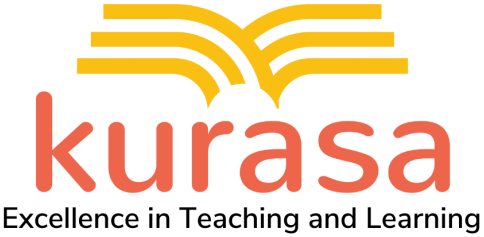
In the dynamic landscape of education, harnessing the power of data has become a cornerstone for informed decision-making. This blog explores how Kurasa’s data analysis and statistics feature act as a beacon, guiding educators towards evidence-based decision-making. We delve into the significance of data-driven approaches, emphasizing their role in improving teaching methodologies and ultimately enhancing student outcomes.
Kurasa Analytics: Unveiling Insights for Educators
1. Real-Time Data Analysis:
- In-Depth Insights: Kurasa’s analytics feature provides educators with real-time insights into various aspects of classroom activities, student performance, and overall curriculum adherence.
- Performance Metrics: Educators can analyze key performance metrics, allowing for a granular understanding of how students are progressing with respect to the Competency Based Curriculum (CBC).
2. Personalized Dashboards:
- Customized Views: Kurasa offers personalized dashboards for educators, enabling them to focus on specific metrics that align with their teaching objectives and the CBC framework.
- Visual Representations: Data is presented in visually intuitive formats, making it accessible and comprehensible for educators, even those without extensive data analysis backgrounds.
3. Student-Centric Analytics:
- Individual Student Profiles: Kurasa allows educators to drill down to individual student profiles, providing a detailed overview of their strengths, areas for improvement, and overall learning journey.
- Learning Progression: Through data analysis, educators can track the learning progression of each student, facilitating targeted interventions to address specific needs.
Importance of Data-Driven Approaches
1. Informed Teaching Methodologies:
- Identification of Learning Gaps: Kurasa’s analytics help educators identify specific areas where students may be struggling, allowing for the adaptation of teaching methodologies to address these gaps.
- Tailored Instruction: Data-driven insights enable educators to tailor their instruction to meet the diverse needs of students, fostering a more inclusive and effective learning environment.
2. Continuous Improvement:
- Iterative Refinement: Regular analysis of data facilitates an iterative approach to teaching. Educators can refine their strategies based on ongoing feedback, ensuring continuous improvement.
- Curriculum Adaptation: Kurasa’s data insights empower educators to adapt curriculum content and pacing based on student comprehension, aligning with the dynamic nature of the CBC.
3. Proactive Interventions:
- Early Identification of Challenges: Data analysis enables educators to identify challenges early on, allowing for timely interventions to prevent further academic setbacks.
- Targeted Support: Educators can provide targeted support to individual students or groups, addressing specific needs and maximizing the impact of their intervention strategies.
Examples of Successful Interventions
1. Adaptive Lesson Plans:
- Data-Informed Adjustments: Educators, armed with insights from Kurasa, can adjust lesson plans in real-time to address topics where students exhibit challenges or accelerate learning where proficiency is high.
2. Formative Assessment Tweaks:
- Timely Feedback: Data analysis of formative assessments enables educators to provide timely feedback, allowing students to correct misconceptions promptly.
3. Differentiated Instruction:
- Tailoring to Learning Styles: Kurasa’s analytics enable educators to identify diverse learning styles within the classroom, facilitating differentiated instruction to meet individual needs.
Conclusion: Transformative Potential of Data
In conclusion, Kurasa’s analytics feature stands as a powerful tool, transforming education into a data-informed journey. By empowering educators with real-time insights, Kurasa facilitates informed decision-making, driving improvements in teaching methodologies and, subsequently, student outcomes. The shift towards data-driven approaches is not just a technological evolution; it’s a fundamental revolution in education, where precision and adaptability become the keystones for success. As we navigate the CBC framework, Kurasa’s analytics become the compass, guiding educators towards a future where every decision is backed by the transformative potential of data.


